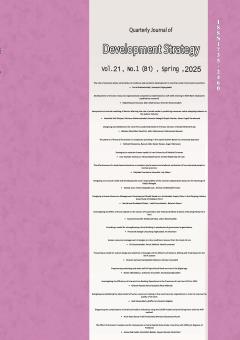Human resources management strategies in crisis conditions: lessons from the Covid-19 era
Subject Areas : Scientific
Ali Hosseinzadeh
1
![]() ,
Parviz Kafcheh
2
,
hamid Lirestani
3
,
Parviz Kafcheh
2
,
hamid Lirestani
3
1 - phD student in public administration, Sanandaj Branch,Islamic Azad University,Sanandaj,Iran Ali.hossinzadeh@yahoo.com
2 - Assistant Professor, Department of Business Administration at the Faculty of Humanities and Social Sciences & Kurdistan Studies Institute, University of Kurdistan, Sanandaj, Iran
3 - Assistant Professor, Department of Mathematics and Statistics, Sanandaj Branch, Islamic Azad University, Sanandaj, Iran
Keywords: Strategy, Human Resource Strategies, Crisis, Covid-19.,
Abstract :
Background and purpose: In the last few years, the world faced a major crisis called Covid-19, which has created great challenges for managers and those involved in human resource management, and the present study, understanding the importance of this issue, seeks to provide a model for human resource management strategies. In the situation of crisis in the executive organizations of West Azerbaijan Methodology: The current research has a qualitative approach that semi-structured interviews were used to collect data and continued until data saturation. Thematic analysis strategy was used to analyze the obtained data, and two strategies of external review and pluralism were used to validate the research model. Findings: The findings of the research showed that 6 main themes and 20 organizing themes and 120 basic themes were identified as human resource management strategies in crisis conditions. Conclusion: The strategies of human resources management strategies with themes and results obtained have six themes of revision in human resources strategies (flexibility in hours, work shift policies, job redesign, functional management); organizational culture (organizational cohesion, organizational agility, organizational communication); Health and safety management (environmental hygiene, mental health of employees, definition of control policies); Digitalization (digital equipment, digital education, digital process); Employee motivation (organizational reward system, organizational support, organization welfare program, perception of employee support) improvement and development of employees (training program, health training, employee productivity management) to be used in times of crisis.
